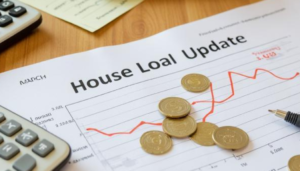France’s rental real estate investment is gaining traction, with 61% of citizens considering it. However, 59% of potential investors are hindered by a crucial lack of borrowing capacity, creating a challenging environment for those looking to enter the market.
In May 2025, an exclusive study conducted by iad, the French leader in real estate transactions, in partnership with Selvitys, unveiled a striking paradox within the realm of rental real estate investment in France. Despite a persistent interest in rental investment, financial and regulatory obstacles are significantly hindering private projects. The survey, which included a representative sample of 1,000 French individuals, revealed that while 61% of respondents have either made or are considering a rental investment, a staggering 59% cited a crucial lack of borrowing capacity as a primary concern.
The Allure of Rental Investment
The iad-Selvitys study highlights a fundamental attraction to rental real estate investment among the French populace. A significant 59% of respondents still view this investment avenue as appealing, with motivations ranging from securing financial stability for the future and retirement (58%) to building assets (51%) and generating additional income (48%). These figures underscore the enduring appeal of rental investment as a viable wealth strategy.
However, the study also reveals a stark contrast between aspiration and action. Only 21% of those surveyed have taken the plunge into rental real estate investment, indicating a considerable gap between the desire to invest and the reality of the current real estate market. Alarmingly, 35% of respondents outright reject the idea of rental real estate investment, raising questions about the structural barriers that are paralyzing the French rental market.
The Borrowing Capacity Dilemma
The primary obstacle identified in the study is borrowing capacity, with 59% of reluctant investors citing it as a significant barrier. This statistic highlights the impact of the European Central Bank’s (ECB) restrictive monetary policies on access to real estate credit. The tightening of credit conditions, particularly the strict application of the usury rate and the effort rate limited to 35%, has made it increasingly difficult for potential investors to secure financing.
As a result, many buyers are either postponing their investment decisions or abandoning them altogether. Even financially solvent households are struggling to obtain financing that aligns with their investment goals. This situation has led to a contraction in investment opportunities, further exacerbating the challenges faced by potential investors.
Economic Concerns and Their Impact
The economic landscape in France has also played a pivotal role in shaping attitudes toward rental investment. According to the iad-Selvitys study, 16% of respondents express concern about the economic situation, which has been characterized by inflation rates exceeding 5% between 2022 and 2023. Although inflation has stabilized at around 2.5% in 2025, it continues to exert pressure on purchasing power, diminishing households’ capacity to save and invest.
This economic uncertainty has made individuals more hesitant to commit to long-term financial decisions, including rental investments. The interplay between economic conditions and investment sentiment is evident, as potential investors grapple with the implications of a fluctuating market.
The Rising Cost of Credit
The study reveals that 41% of respondents cite high interest rates as a primary obstacle to rental investment. This marks a significant shift from the period between 2010 and 2021, which was characterized by near-zero interest rates. Under the leadership of Christine Lagarde, the ECB raised its key rates to 4.5% in 2024, leading banks to pass on these increases to real estate loans. Consequently, borrowing rates for rental investments now range between 4.2% and 5.1%, a stark contrast to the sub-1.5% rates of 2021.
This surge in interest rates has fundamentally altered the profitability landscape for potential investors. Many investment opportunities have become unsustainable, prompting a reevaluation of financial strategies among those considering rental investments.
Environmental Constraints and Regulatory Challenges
In addition to financial barriers, environmental constraints have emerged as a significant concern for potential investors. The iad-Selvitys study indicates that 18% of respondents view these constraints as a deterrent. The “Climate and Resilience” law, enacted on August 22, 2021, has gradually phased out the rental of energy-intensive properties. By 2025, properties classified as G+ will be removed from the rental market, disproportionately affecting older housing stock that is often targeted by investors.
This regulatory shift has triggered a domino effect, with 16% of landlords already ceasing rental activities and an additional 10% planning to exit the market within the next five years. The combination of a burdensome tax system and the desire to recover capital has led to a contraction in the rental supply, further intensifying market tensions.
The Search for Attractive Properties
Finding attractive rental properties has become increasingly challenging, with 9% of potential investors citing this as a significant hurdle. The scarcity of supply in high-demand areas, coupled with soaring property prices, has made it difficult for investors to identify viable opportunities. In major French cities, gross rental yields have stagnated, rarely exceeding 3% to 4%, which is insufficient to cover costs and generate positive cash flow after loan repayments.
This unfavorable financial equation has deterred many potential investors, further contributing to the decline in rental real estate investment activity.
The Complexities of Rental Management
The administrative complexities associated with rental management have also emerged as a major deterrent for potential investors. The iad-Selvitys study reveals that 89% of respondents consider managing unpaid invoices to be complex or very complex. With eviction proceedings averaging 18 to 24 months, landlords face significant financial losses during this period. The ALUR law of 2014 and its subsequent amendments have added layers of complexity, increasing reporting obligations and responsibilities for property owners.
The mental load associated with rental management is a pressing concern, with 32% of landlords reporting that management is a source of ongoing stress. This reality contrasts sharply with the traditional perception of rental real estate investment as a passive and low-maintenance endeavor.
The Need for Administrative Simplification
Since 2023, landlords have been subjected to a myriad of obligations, including annual property income declarations, compliance with energy standards, and management of mandatory diagnostics. This accumulation of administrative requirements has discouraged 25% of potential investors, who cite significant time losses in managing their rental properties.
Taxation also remains a major obstacle, with 18% of respondents expressing concerns about the clarity of the French tax regime for rental investments. Recent changes, such as the gradual abolition of the Pinel scheme and the evolution of the LMNP status, have contributed to a climate of tax uncertainty.
Embracing Digital Solutions
In response to these challenges, digital solutions are beginning to emerge as a viable option for rental management. The iad-Selvitys study indicates that 34% of landlords are considering delegating management tasks to a 100% online service, while 56% are open to the idea. This shift aligns with the growing demand for simplification and efficiency among modern investors.
A previous Selvitys study conducted in December 2024 revealed that only 7% of landlords utilized digital rental management services, but this figure is expected to rise rapidly. The perceived benefits, including reduced mental load, time savings, and secure rent collection, are driving this trend.
The Call for a Private Landlord Status
The iad-Selvitys study highlights that 37% of respondents believe current regulations are too restrictive for rental real estate investment. This perception reflects a legal framework that is often viewed as hostile to private investment. The UNIS (Union of Real Estate Unions) is advocating for the establishment of a formal status for private landlords, aimed at clarifying the increasingly convoluted tax framework.
This proposed status would encompass three key pillars: the introduction of depreciation of residential assets, the deductibility of operating expenses, and over-depreciation for energy renovations or moderate rents. These measures could significantly enhance the attractiveness of rental real estate investment.
Generational Perspectives on Rental Investment
Age plays a crucial role in shaping perceptions of rental real estate investment. Older individuals tend to view environmental regulations as overly restrictive, while younger investors prioritize concerns related to the cost of credit. This generational divide underscores the varying priorities and experiences of potential investors, highlighting the need for tailored approaches to address their concerns.
Proposed Solutions for Revitalizing Rental Investment
To rejuvenate rental investment in France, the study identifies three priority levers. Tax reduction emerged as the most pressing demand, with 29% of respondents advocating for a more favorable tax environment. The high marginal tax rates, which can reach 45% for top earners, serve as a significant deterrent to private investment.
Additionally, 24% of respondents called for increased aid for energy renovations, reflecting the challenges posed by regulatory requirements. The current support schemes, such as MaPrimeRénov’ and CEE, are often insufficient to cover the substantial costs associated with renovations.
Finally, the desire for reduced interest rates, expressed by 24% of respondents, underscores the influence of European monetary policy on the attractiveness of rental investment in France.
The iad-Selvitys study paints a complex picture of rental real estate investment in France, characterized by a paradox of persistent interest amidst significant barriers. While motivations for investment remain strong, financial constraints, regulatory challenges, and economic uncertainties have created a landscape fraught with obstacles. To revitalize this critical sector, stakeholders must address the pressing need for administrative simplification, tax clarity, and support for energy renovations. By fostering an environment conducive to private investment, France can unlock the potential of its rental market and provide much-needed housing solutions for its citizens.









